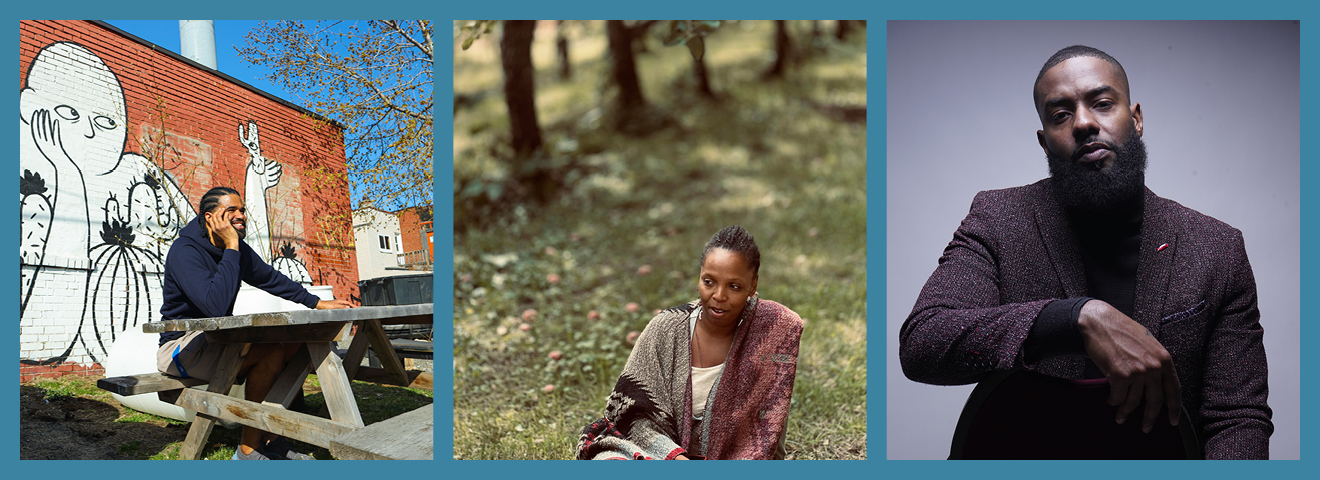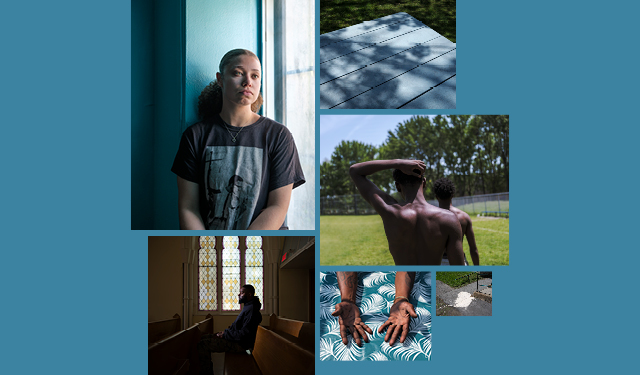Conference-workshop
Septembre 10 | 6 p.m.

As part of the exhibition Little Burgundy – Evolving Montreal by Andrew Jackson, the Museum is inviting the general public, the Little Burgundy community, and academia to take the floor at a conference-workshop that aims to decompartmentalize knowledge about the Black space concept, in the specific context of the Little Burgundy neighbourhood. A Black space is a space which enhances the value of the history, and the heritage of the plural Black communities of Montreal.
Based on the fishbowl method, the event invites the participants to think about the racialization of the urban space, the historical transformations of Little Burgundy, the diversity within the Black communities of this area, the new migration waves and their social and urban impact, as well as the role of everyday life in building the social fabric of the neighbourhood.
The event will be presented by Svens Telemaque, transformative author, keynote speaker, and social entrepreneur who works in Little Burgundy, and Caroline Flory-Célini, doctoral student in Urban Studies at the INRS – the National Institute of Scientific Research – who studies the inclusion/exclusion of Afro-descendants in greening projects in Montreal, with a special focus on Little Burgundy.
The event is cocurated by Svens Telemaque, Caroline Flory-Célini, Leslie Touré Kapo (INRS), as well as the McCord Stewart Museum, and is presented in association with the National Institute of Scientific Research (INRS).
Information
- Free Activity, in French and English, held on Wednesday, September 10, 2025, from 6 p.m. to 7:30 p.m.
Limited seating, reservation required - Duration: 90 minutes
- Location: J. Armand Bombardier Theatre, McCord Stewart Museum
Interested in the event, but it is sold out? You can show up 15 minutes in advance, and register on the waiting list. Some seats might become available before the beginning of the event.
Biographies
Svens Telemaque
Svens Telemaque is a transformative author, keynote speaker, and social entrepreneur who dedicates himself to youth empowerment and prison reform. His journey of overcoming adversity has shaped his mission. For the Union United Church, he heads a groundbreaking initiative with Black male prisoners taking on community roles, and taking part in trauma-informed personal development courses. His workshops have a global impact in schools, prisons, and various institutions.
Svens is also a mentor who offers guidance to young Black men through the Maasai Mentoring Group of the West Island Black Community Association (WIBCA). This program provides them with essential life skills, fostering resilience. His commitment to his cause is obvious in view of his numerous travels across the US, Canada, the Caribbean, and Africa, where he provides thousands with the necessary tools to overcome difficulties. For him, the saying “broken crayons still colour” symbolizes the potential for improvement despite adversity.
Caroline Flory-Célini
Caroline Flory-Célini, doctoral student in Urban Studies at the INRS – the National Institute of Scientific Research –, examines the inclusion/exclusion of Afro-descendants in greening projects in Montreal. Through her research in the emblematic neighbourhood of Little Burgundy, which is shaped by the history and the cultural contributions of Black communities, she highlights the deep connections between collective memory and urban renewal. Driven by the conviction that “everything is energy”, she takes a holistic approach where nature in the city provides a space for reconnection, balance, and transmission. Through initiatives such as “Cultiver pour se cultiver”, she likens working the soil to a personal journey, enhancing empowerment and self-esteem in urban contexts often characterized by exclusion. With her experience in inclusive governance, Caroline sees every project as a cocreation opportunity between humans and non-humans, honoring the invisible connections that unite the living. Her work aims to transform spaces into places of equity, life, and belonging, highlighting the stories and contributions of communities often rendered invisible. Her approach, both deeply rooted and visionary, combines love, science, intuition and commitment.
Leslie Touré Kapo
Leslie Touré Kapo is an adjunct professor of Urban Studies at the Urbanisation Culture Society Research Centre of the INRS. His fields of interest include Youth Studies, Urban Studies, and Black Studies. His work focuses on the social construction of race, class, gender as well as sexual identity, and their impact on the life path of the residents of working-class neighbourhoods in contemporary cities. His expertise in research and teaching is based upon a rich experience of social intervention and popular education within marginalized urban spaces in France, the province of Quebec, and Canada.




